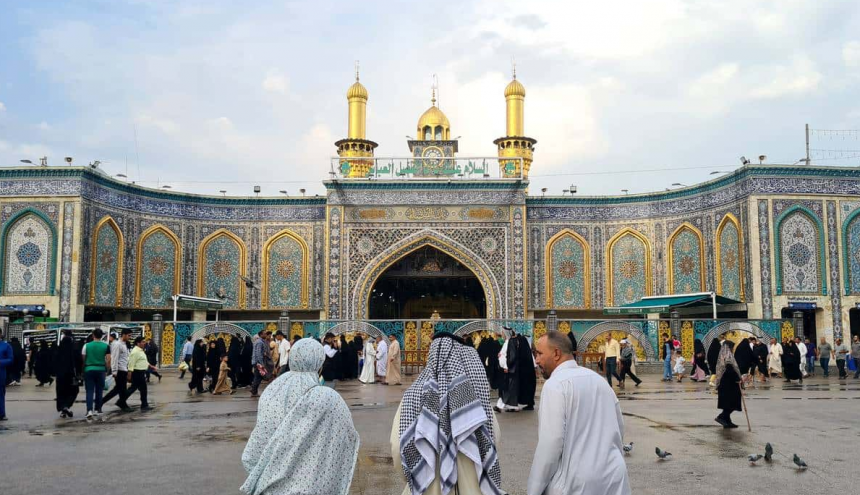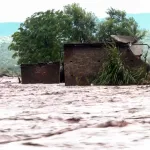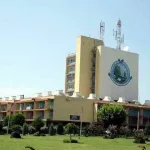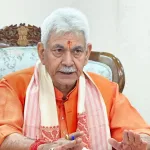In the unforgiving desert of Karbala, under the sun that burned so fiercely it seemed determined to consume the very sky, a tragedy unfolded that has echoed through every century since, burning like a flame in the heart of humanity. It is a story not merely of swords and blood but of a pain so deep it pierces the soul—a pain born of betrayal, of sacrifice, of the price of standing for truth when all the world demands silence.
On one side, the mighty Euphrates River flowed, its waters glittering like diamonds under the blazing sun, so close yet forbidden. On the other side stood Imam Hussain (AS), the beloved grandson of the Prophet Muhammad (SAW), surrounded by his family and seventy-two loyal companions, their lips cracked and bleeding from thirst, their bodies trembling with weakness, but their spirits towering higher than any palace or throne.
Imam Hussain (AS) knew that to surrender to Yazid meant selling the very soul of Islam into the hands of tyranny, hypocrisy, and oppression, where faith would become a tool twisted into chains for the people. So he chose thirst, hunger, loneliness, and the certainty of death over living even one more day beneath the shadow of falsehood and injustice. The agony in those burning sands was not merely the pain of parched tongues and dying children, but the far sharper pain of betrayal—from the same people who had once kissed Imam Hussain’s (AS) forehead in love, who had wept with joy when he was born, but who now raised swords to sever his blessed head.
What wound cuts deeper than a blade through flesh? It is the wound of trust betrayed, the knife of loyalty turned to poison. The Qur’an warns: “Among people are those whose speech about the life of this world impresses you, and he calls Allah to witness as to what is in his heart, yet he is the fiercest of opponents.” (Qur’an 2:204).
Imam Hussain’s enemies prayed, fasted, and recited the Qur’an, yet they stood guard over a throne built on lies, showing the world that rituals are worthless when hearts are blind and justice is drowned beneath ambition. How it must have torn Imam Hussain’s soul (AS) to hear the children in his camp wail, “Al-Atash! Al-Atash!” — “We are thirsty! We are thirsty!” — while the river glittered only steps away.
Imaam Hussain (AS) could have saved them all with a single word of surrender. Yet he refused, lifting his six-month-old son Ali Asghar high in his arms, begging for a drop of water for the innocent child, only to watch an arrow pierce the baby’s throat, blood gushing like a crimson spring into Imam Hussain’s (AS) trembling hands. Through his tears, he whispered, “O Allah, accept this sacrifice from us,” and in that moment, the earth itself seemed to convulse in grief, as though even the sand and sky could not bear such cruelty.
Allah (SWT), in His wisdom, reminds us in the Qur’an, “And do not say of those who are slain in the way of Allah that they are dead. Nay, they are alive, but you perceive it not.” (Qur’an 2:154). Though Imam Hussain’s (AS) body fell, cut by countless wounds, his message rose higher than any sword ever forged, echoing across time to declare that honour is worth more than life, and truth, though it demands the price of blood, can never be buried beneath the sands of any desert.
The agony of Karbala deepens further when we realise that the thirst which dried the lips of Imam Hussain (AS) and his companions was not only a thirst for water but a thirst for justice, for the protection of the pure message of Islam as it was delivered by Prophet Muhammad (SAW). Imam Hussain’s (AS) thirst was the burning thirst of a soul refusing to be enslaved by tyranny, refusing to watch religion twisted into a weapon for political power.
His was the thirst of a man who looked into the eyes of his children, his brothers, his friends, knowing each face would soon be struck down, yet who stood unwavering, for faith to him was not a matter of empty rituals but a living flame burning so fiercely that even the fear of death could not extinguish it. And though Imam Hussain (AS) stood upon the burning sands, surrounded by enemies whose swords glinted like waves of steel under the sun, he remained dignified, his voice gentle yet resolute, speaking only truth, compassion, and courage.
He pleaded with his enemies, not to save himself, but to save them from the eternal sin of killing the grandson of the Prophet (SAW). Yet their hearts were hardened, as the Qur’an says: “Then, after that, your hearts were hardened and became as stones, or even harder.” (Qur’an 2:74). Their thirst was not for water but for power, for wealth, for titles and fleeting glory, and they chose the comfort of this world over the salvation of the next.
The tragedy of Karbala grew minute by minute as the sun rose higher, each moment more agonising than the last. One by one, Imam Hussain’s (AS) companions stepped forward to defend the camp, knowing that death awaited them. Imam Hussain (AS) watched as his beloved brother Abbas fell by the river, his arms severed, water spilled from his hands, dying with the cry of “Thirst!” on his lips. Imam Hussain (AS) saw young Qasim, barely a teenager, ride bravely into the storm of swords, and Ali Akbar, his own son, fall with his face slashed open, his youth crushed beneath the hooves of enemies blinded by hatred.
Each martyr fell with cries of “Labbaik Ya Hussain!” echoing across the desert, their blood soaking into the earth as an eternal testimony that dignity and truth are worth every drop of life itself. And as the sun began to set, casting long shadows over sands now red with blood, Imam Hussain (AS) stood alone, his clothes torn, his body battered, his heart shattered, yet his spirit blazing with a light no sword could extinguish.
Even then, Imam Hussain (AS) refused to bow, proclaiming, “I have not risen except to seek reform in the Ummah of my grandfather. I desire to enjoin good and forbid evil, and to follow the tradition of my grandfather and my father Ali ibn Abi Talib.”
He showed the world that Islam is not a mask for injustice, but a living truth demanding sacrifice, demanding that we speak out even when our voices tremble, even when the cost is everything we hold dear. Though swords tore into his flesh, Imam Hussain’s (AS) message cut deeper into the darkness of history, burning so brightly that even kings and empires could never silence it.
Yet the greatest pain of Karbala is that it does not remain trapped in history’s past—it lives on, burning its questions into our present day. For Yazid did not die on the battlefield; he lives wherever tyrants crush the weak, wherever leaders silence truth to keep their power, wherever scholars hide behind silence while injustice reigns, wherever wealth and comfort are worshipped like idols.
Yazid’s face is visible in every bomb that falls upon innocent people, in every child orphaned by the greed of rulers, in every lie spoken by those who claim piety but protect oppression. And Imam Hussain’s (AS) voice still calls out to us from across time, demanding we answer: where do we stand? Do we choose comfort over courage? Do we drink from the river of false security while others die of thirst for justice? How often have we chosen silence, pretending it’s not our problem, so we can protect our reputations, our jobs, our ease? Yet Karbala teaches us that injustice anywhere is a wound upon the entire body of humanity.
The Qur’an commands: “O you who believe! Stand out firmly for justice, as witnesses to Allah, even if it be against yourselves or parents or relatives.” (Qur’an 4:135). But how many times do we fail this test? How many times do we betray Imam Hussain (AS), not by lifting swords against him, but by lowering our voices when truth demands to be spoken?
Karbala is not just a tearful memory to be mourned once a year; it is a mirror held up to our faces, asking painfully: when the price of speaking truth becomes high, will we drink the easy water of silence or choose the burning thirst of standing alone for what is right?
The sands of Karbala cry out across the ages, whispering into the depths of human hearts, reminding us that faith without courage is empty, that prayers without justice are lifeless sounds, and that rituals mean nothing if we allow oppression to continue unchallenged.
Imam Hussain’s (AS) story is not merely to be remembered but to be lived every day, for he taught us that the soul of Islam is justice, compassion, and the unyielding refusal to kneel before tyranny. His blood was not spilled in vain; it became the ink that writes the story of human dignity for all generations.
Though Imam Hussain’s (AS) body fell in Karbala, his spirit remains undefeated, and every tear shed in his memory is a promise whispered into the silence: “I, too, will stand for truth, even if I must stand alone.” This is the miracle of Karbala—that from a field soaked in blood and pain rose a river of hope, quenching the thirst of every generation that longs for freedom, dignity, and divine truth.
Karbala wounds the heart, but it also heals it, teaching us that though truth may be crushed under tyranny for a day, it will rise again with every dawn, carrying Imam Hussain’s (AS) immortal promise that no Yazid shall ever truly rule unchallenged.
And so, those who drank water in Karbala have vanished into the dust of forgotten history, while those who remained thirsty live on forever, seen by Allah (SWT) and cherished in the hearts of all humanity, proving that there are lives which death cannot erase, and truths no sword can ever silence.








